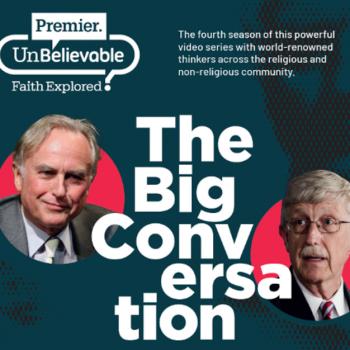I thought I would do a short series of posts looking at some of the practical implications of thinking in a multicultural way within the context of a Christian worldview. There is probably nothing more firmly embedded in our cultural identities than what we choose to eat. If you are English of a certain age, then the chances are good that next Sunday you will be eating for lunch a roast dinner of meat, roast potatoes, gravy and some vegetables. Even if you are not able to produce such a meal, I would expect that your mouth is salivating at the thought of it just like mine is as I write it!
If you are Asian, then it is far more likely that curry and rice will be on the agenda next Sunday. If you are African, then the rice is likely to be of a different variety and accompanied with chicken coated in a hot pepper sauce. Americans will often eat a “Sunday Brunch,” which seems to be an adaption of our English breakfast with fruit and salad added to make one feel less guilty about pigging oneself.
One of the marks of secular multiculturalism in the UK is that we are, as a nation, possibly one of the best in the world at adopting the cusine of other countries. Our French neighbors, among others, might argue that we do this because our own food is so unpalatable. The truth is, for centuries English culture has been about being the magpies of Europe. Whenever we see something we like, we adopt it as our own! For example, Indian curry is available in more restaurants in the UK than fish and chip shops. Other favorites, such as pizza, pasta, and shepherd’s pie, are also stolen from elsewhere. Often we adapt the recipes, however, and nationals from the countries of origin of our dishes would not recognize our versions as authentic. The truth is that food does give people a sense of identity. We feel more connected to people that eat similar foods to us. Sitting down and eating food is a universal way humans build community together. Agreeing to eat something that another has prepared communicates that we trust the cook!
The challenge to the Christian seeking to be biblically multicultural is to eat whatever is set before them. (see Luke 10:8). We cannot reject people’s food without rejecting them. Food is clearly one of the things Paul has in mind when he said:
“I have become all things to all people, that by all means I might save some. I do it all for the sake of the gospel, that I may share with them in its blessings” (1 Corinthians 9:22-23).
Over the years there has never been a stranger example of this than what I experienced one day in Brick Lane, right in the heart of London’s Bangladeshi community. I was with a Pakistani Christian who God used to teach me about being multicultural over a period of several years. I had eaten “English curry” before, but now we were sitting in a restaurant serving more authentic cuisine. He asked me what I wanted to eat. In a moment of cultural sensitivity or naivety, depending on your perspective, I told him that since he knew the food better than I, he could choose for me! O the folly! At that moment, I think my friend decided to have some fun with me and at the same time test my commitment to this multicultural way of life.
The plate of food before me looked a bit unusual. I decided not to ask what it was. I loaded my fork (fortunately I wasn’t expected to eat with my fingers in a truly authentic manner on this occasion). As the fork began what was going to be a slightly slower than normal visit to my mouth, my friend simply said, “You do realize that’s brain curry you are about to eat, don’t you?” In that instant my mind was full of revulsion. I have never been very keen on eating offal, or rather at least, not keen on knowing I was eating offal. We don’t like to think about what goes into our sausages, but at that moment I was about to eat brain! My friend was particularly mean as he waited to the optimum moment of embarassment before telling me what I was about to eat. If it had beeen a few seconds earlier, I might never have loaded my fork. A few seconds later and I would have been eating it in blissful ignorance already!
I had a choice. Would I let my food prejudices rule, or would I become an Asian for that moment. With a gulp, I chose the latter. The taste was actually quite nice, but the texture was very strange. It was like eating a sponge. My friend never offered brain curry to me again, but I am sure that moment helped to strengthen our relationship. Are you prepared to eat anything for the sake of the gospel?












